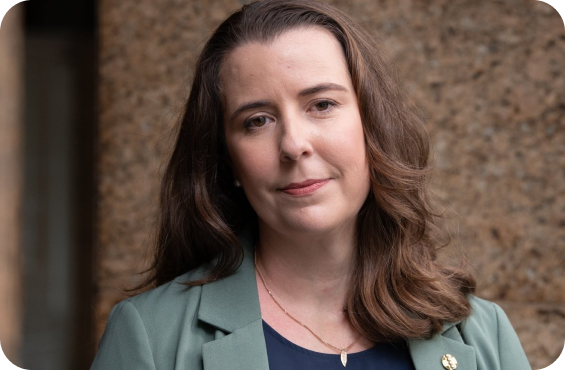Progress Made, Reform Remains.
The Modernise Medicare campaign is run by the Australian Medical Association (AMA).
Medicare is meant to be for all Australians
Recent commitments to increase bulk billing incentives and GP placements for doctors are welcomed as a positive step towards improving access to GP services and patient access
But the job of reforming Medicare remains. We want to ensure Medicare is fit for purpose, so you get the time and care you deserve.
It's time to Modernise Medicare
We can’t afford to delay modernising Medicare if we want it to be sustainable for the future.
It’s clear Australians want to Modernise Medicare
We need to build on this momentum to Modernise Medicare for every Australian.
We need a general practice that is funded and resourced so that it can meet the needs of patients today and tomorrow.
The AMA's plan to Modernise Medicare: Longer consults, smaller out of pockets.
We also want to support expanded access to nurses and allied health including physiotherapists, mental health specialists and dieticians – to support Australian’s diverse health issues.

Impact on real Australians
Select an impact to learn more
Our primary care system prioritises continuity of care, enabling patients to choose and regularly see their GP.
Continuity of care is especially valuable for families, older Australians, and those managing chronic illnesses or mental health conditions.
Building a trusted, long-term relationship with a GP ensures proactive, personalised care that improves health outcomes.
But to tackle our future health challenges, we need to Modernise Medicare — so general practice is supported.
Primary care is the backbone of our healthcare system.
Yet Australians defer primary care services due to cost or access issues.
The result? Worsening conditions, longer wait times and reduced access to critical treatments for those who need them.
Without reform, more Australians will be forced to rely on our overburdened hospitals — not through choice, but because they can’t afford or access a GP.
Australians pay taxes for Medicare, and in a cost-of-living crisis we need help.
Yet, AMA analysis has continually shown Medicare has never been funded to keep up with inflation.
Funding continues to be stripped, year-on-year, by inadequate rebates.
As costs continue to rise, patient rebates are left further and further behind.
The result — your credit card has to pick up the slack left by your Medicare card.
Take action now
GPs are the backbone of our health system
Patients need support
Medicare is leaving you behind
The solution?
Modernise Medicare
Australians are facing rising chronic disease rates and increasingly complex care needs. Patients often visit GPs for multiple health issues in one appointment. It’s a very different landscape to the 1980s when Medicare was born.
The current Medicare structure for a visit to a GP has not changed meaningfully in decades, when the health challenges faced by Australians were very different.
We need a Medicare structure that supports GPs to spend the time they need with their patients, particularly those with chronic disease or complex health issues.
The AMA’s Modernise Medicare plan addresses this.
With a new Medicare structure, developed over 18 months with input from GPs across the country, our plan is designed to give you — the patient — the support you need to access care.
It also outlines the plan to recruit and train more GPs and make our future GP workforce sustainable.
And it outlines how we can Modernise Medicare to ensure all our primary care workforce — our nurses, pharmacists, and mental health professionals — can work with GPs to provide the care patients need.
Read the policy in fullThe AMA’s plan to Modernise Medicare recognises the changing healthcare needs of patients. It supports GPs to adapt to this by giving them, and you, more time.
The AMA’s plan provides a major reform of Medicare rebates for GP visits, removing the current penalties for spending more time with your GP.
The new structure of GP consultation items provides the time to support comprehensive care — be it prevention, supporting management of complex conditions, or helping avoid unplanned hospital admissions.
It does so by having more sensible time limits for each level of consultation, and a Medicare structure that is fairer for patients, particularly those who need more complex care.
That’s because the AMA recognises longer GP consultations lead to better healthcare outcomes and encourage high-quality clinical practice
The AMA’s plan to Modernise Medicare also focusses on providing Australia with more GPs to care for the community.
In addition to improved patient support through Medicare, the AMA is calling for action to recruit and train more GPs by expanding GP training programs and creating more opportunities for early career doctors to work in general practice.
The AMA plan calls for funding to encourage more doctors to become GPs by improving the pay and conditions for GPs, so they are comparable to the conditions being offered to doctors working in public hospitals.
And to ensure we don’t lose sight of the important work general practice does, the AMA is calling for the re-instatement of the funding that allows us to collect data on general practice — so next time we have the information we need to make the right decisions for Australia’s primary care system.
GPs are the heart of our health system.
86 per cent of Australians visit the GP at least once a year.
A well-funded, modernised Medicare can support GPs as the central pillar of our health system.
That’s why the AMA’s plan includes initiatives to ensure general practice is supported to employ more nurses and allied health professionals (like physios, dietitians, psychologists and diabetes educators).
GPs are the front line of mental health services, and the AMA plan would provide for them to employ dedicated mental health staff and offer comprehensive services.
This is convenient for patients, as it allows patients to access more types of care under the one roof, strengthening general practice as the medical home.
By further investing in the Workforce Incentive Program, GPs will have greater capacity and flexibility to create a true medical home for you — and ensure we meet the promises made to the Australian community about My Medicare.
Australia's future can't wait
“If action isn't taken now, the Medicare funding gulf will continue to grow to the point of no return. Now is the time to act.”
Dr Danielle McMullen
AMA Federal President
